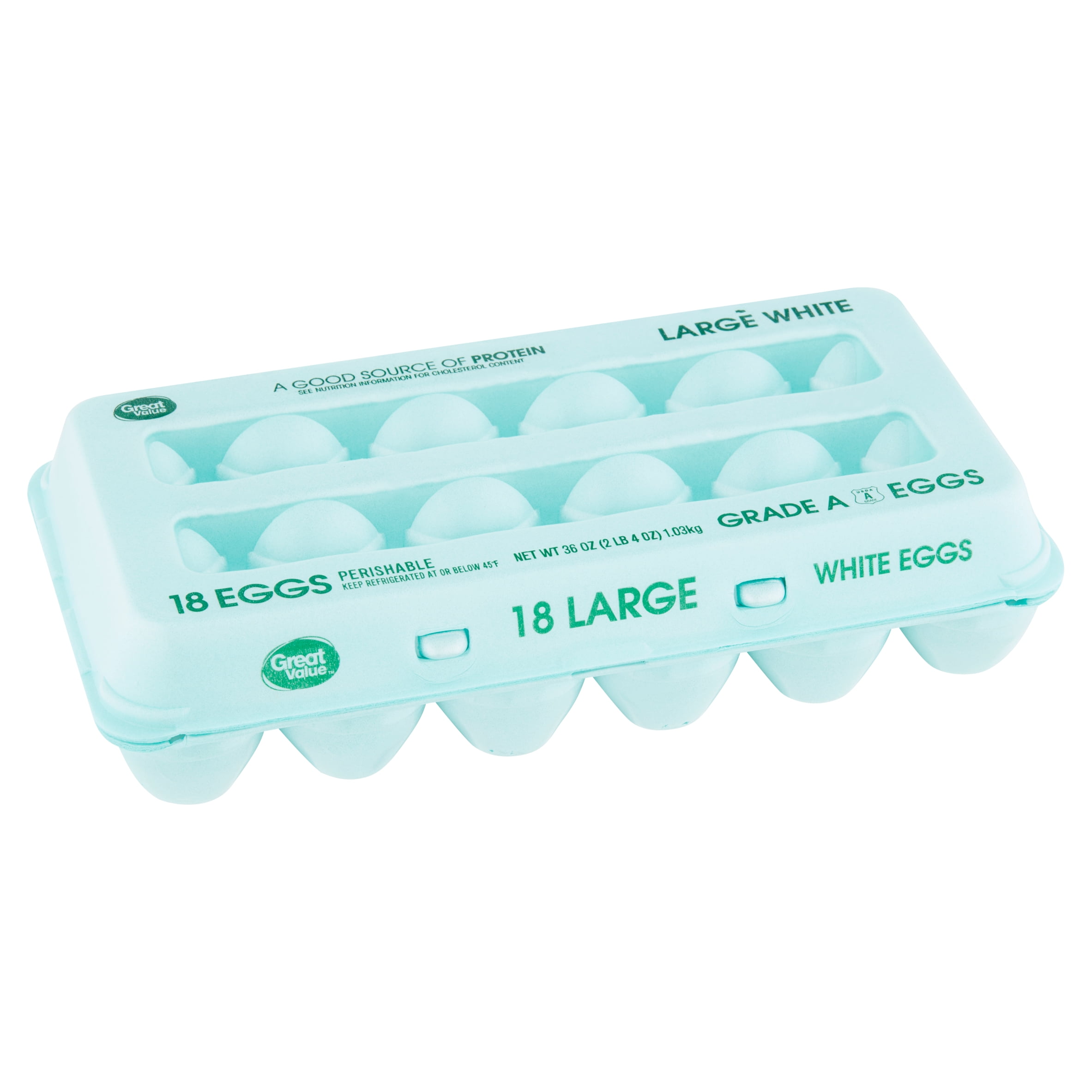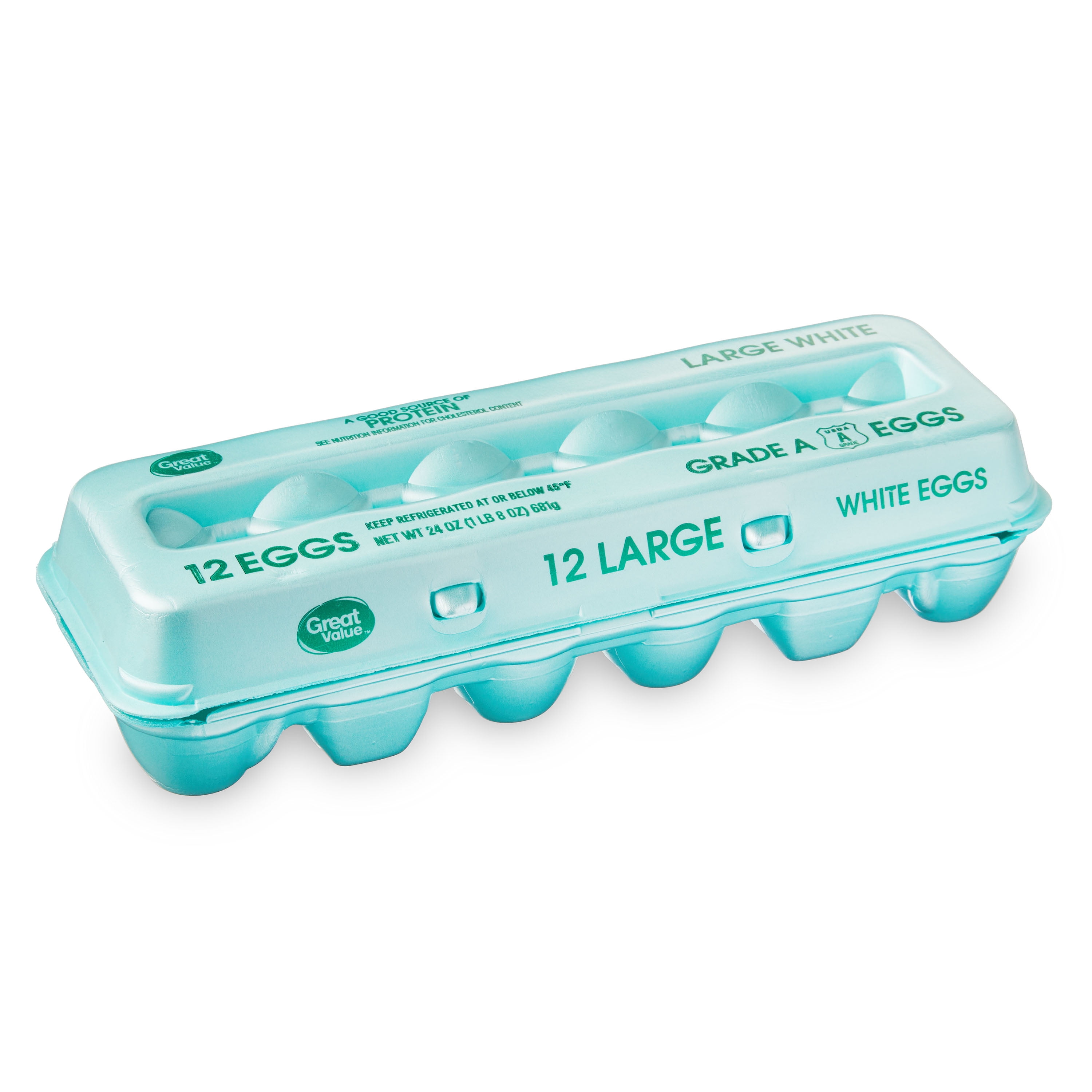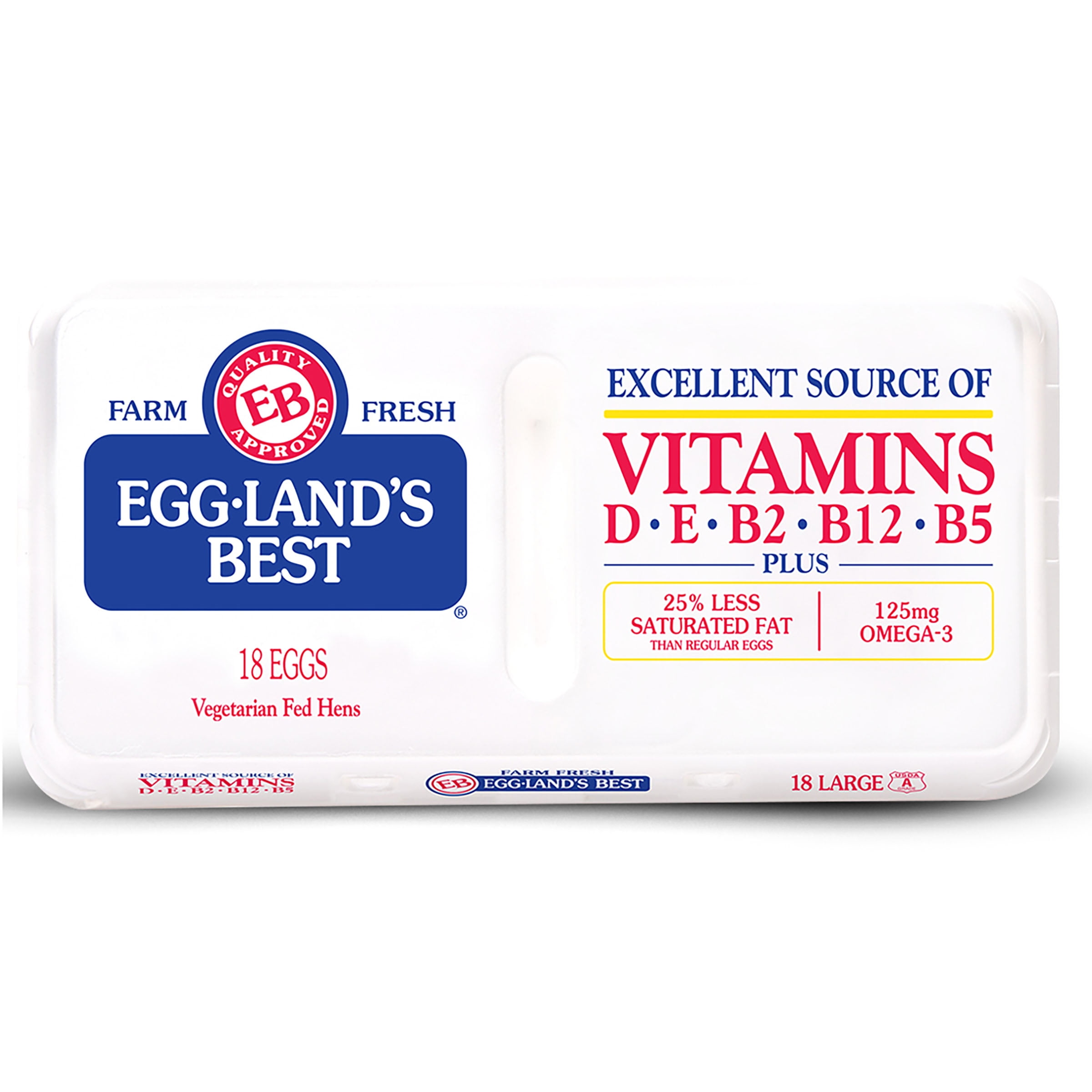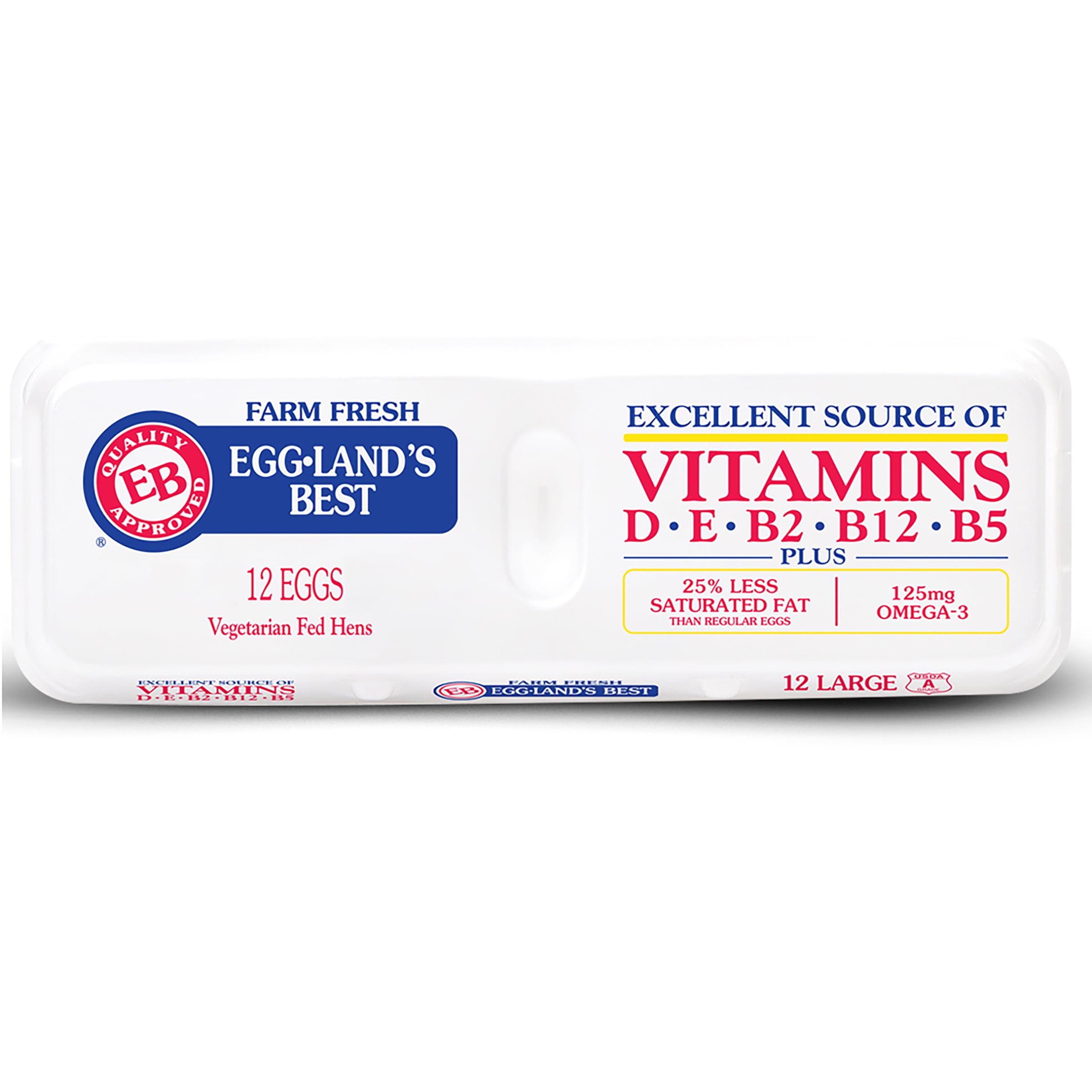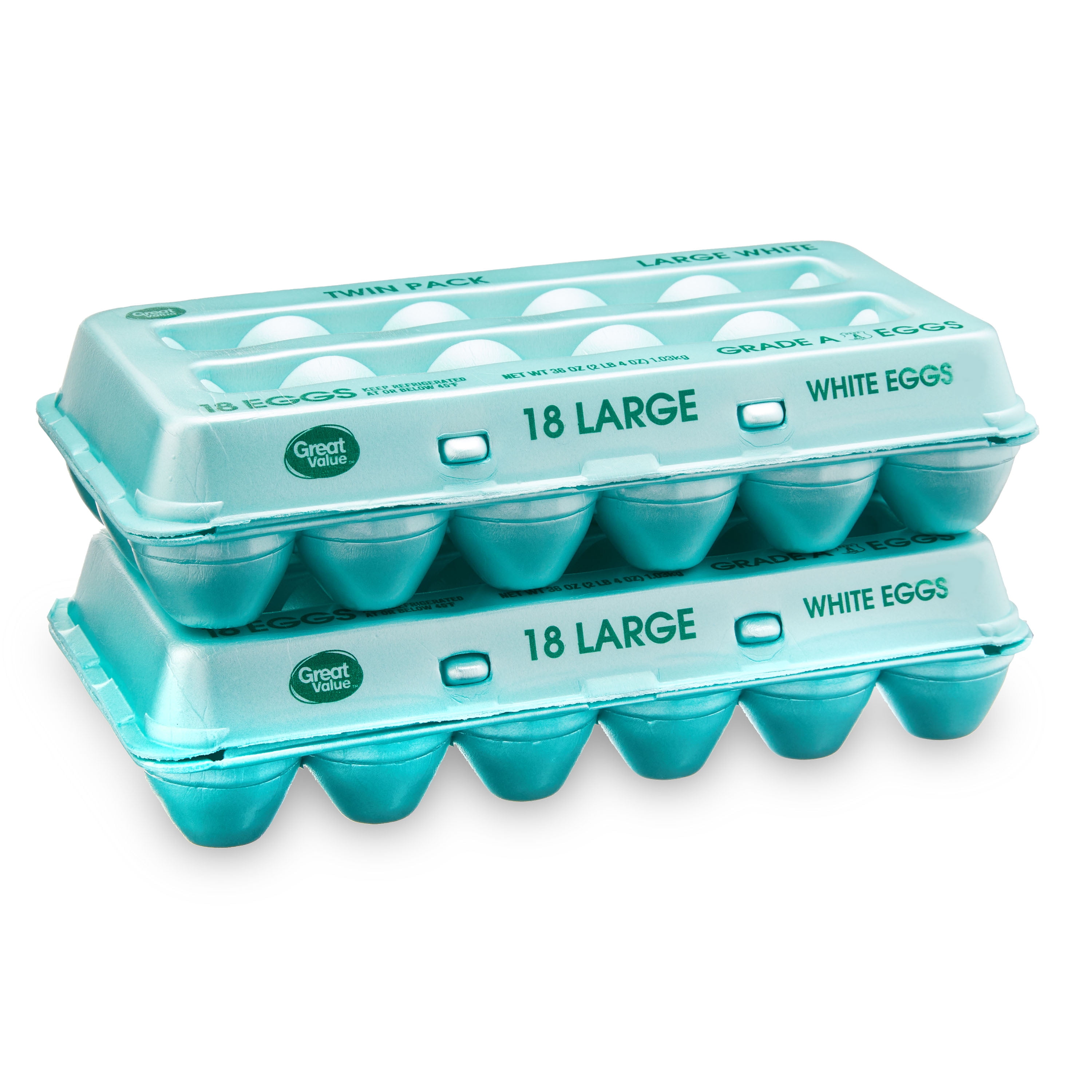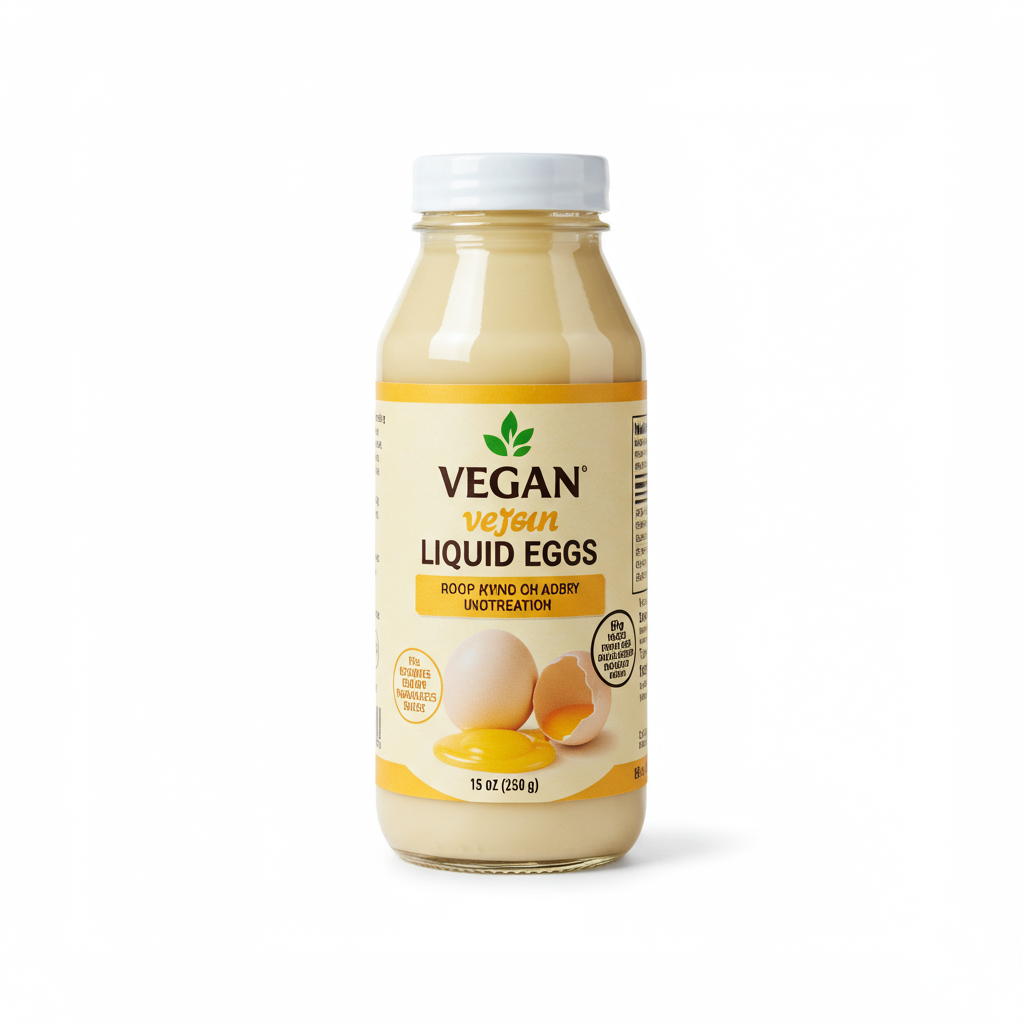Eggs
Eggs, highly versatile and nutritional, are a staple ingredient in numerous cultures and cuisines across the globe. They are typically produced by birds, most commonly chickens, and are enclosed in a hard, calcium carbonate shell to protect the developing embryo or ovum.
Often consumed as a protein-rich food, eggs are incorporated in countless dishes and recipes, whether boiled, scrambled, fried, or poached. Additionally, they serve various culinary functions, such as binding, leavening, or emulsifying, and can be enjoyed on their own or as part of a larger dish.
3%
CARBS
42%
FAT
55%
PROTEIN
6,236 Eggs Products
Wegmans Grade AA Large Eggs, 18 Count
Wegmans Grade AA Large Eggs, 12 Count
Great Value Large White Eggs, 18 Count
Great Value, Large White Eggs, 12 Count
Eggland's Best Classic Large White Eggs, 18 count
Eggland's Best Classic Extra Large White Eggs, 12 count
Wegmans Food You Feel Good About Large Eggs
Wegmans Grade AA Extra Large Eggs, 18 Count
Great Value Large Grade A, 36 Count Value Pack
Wegmans Jumbo Eggs, 12 Count
Used In 5,179 Recipes
4
Crunchy Homestyle Chicken Strips
3
Crispy Cinnamon Sausage Roll-Ups
3
Cheesy Fiesta Tamale Skillet
3
Unforgettable Honey Sriracha Baked Chicken
6
Perfect Cajun Crispy Chicken Tenders
2
Tropical Ham and Pineapple Fried Rice
4
Crispy Baked Fish Fingers
5
Effortless Ravioli Lasagna
Eggs Are Frequently Used With
Eggs FAQ
Eggs are one of the most commonly used ingredients as they play so many different roles in cooking. They can be the star of the show, like in a frittata or a French omelette, or they can play a supporting role in cakes and other desserts, acting as a binder and providing moisture. The versatile egg can fluff up a souffle, create a rich custard, or form the base of a savory quiche.
However, working with eggs can sometimes be confusing. A common mistake is adding eggs directly to hot ingredients, leading to scrambled eggs instead of a smooth mix. Another is timing the cooking right to get the desired consistency, particularly when boiling or poaching.
To get the most out of eggs, consider the freshness as fresh eggs will hold their shape better while cooking, making them perfect for poaches and fried eggs. For older eggs, the whites broaden and thin out which makes them great for boiling as it makes them easier to peel. Scrambled eggs benefit from generous seasoning and low-and-slow cooking to maintain their creaminess.
One little known hack for eggs is that they can be used to clarify soups or stocks. Simply whisk an egg white until frothy, then slowly add it to your simmering broth. The egg will coagulate and attract bits of impurities in the broth. Strain the soup after and you have a beautifully clear, clean-tasting soup!
How can I tell if my eggs are fresh?
Why are my boiled eggs difficult to peel?
How long should I cook my eggs so they all turn out the same?
How can I make my omelettes fluffy?
How many eggs is it safe to eat in a day?
Are brown eggs healthier than white eggs?
Does the thickness of eggshells indicate the egg's quality?
What's the difference between free-range, organic, and conventional eggs?
Why do egg yolks sometimes have a greenish color?
When should I use grade A eggs versus grade B eggs?
Expiration & Storage Tips
When does eggs expire?
Unopened eggs or freshly-laid eggs can last up to five weeks if stored in the refrigerator. As for the printed date on the carton, it is not an expiration date, but rather a 'best by' date. Eggs are still good for consumption for about three weeks beyond this date, again, if stored in the refrigerator. Once opened or cracked, eggs should be consumed within two days, whether they're raw or cooked. When frozen, raw egg yolks or whites can last up to a year, but remember to never freeze them in their shells due to the risk of bursting.
How do you tell if eggs is bad?
To tell if an egg is bad, the easiest way is to use the smell test. Bad eggs will give off an unmistakable smell, even from the shell. You can also use the water test by placing the egg in a bowl of water. Fresh eggs sink and stay at the bottom while old eggs float because of the large air cell that forms as they lose moisture. If an egg looks discolored or has a slimy texture once cracked, it has likely gone bad and should not be consumed.
Tips for storing eggs to extend shelf life
• Always store your eggs in the main body of the refrigerator. Avoid the door as the temperature there can fluctuate.
• Keep eggs in their original carton to protect them from absorbing odors from other foods.
• Hard-boil extra eggs that are about to reach their expiration date. Boiling can give them an additional week of life, ideal for snacks or salad toppings.
• For freezing eggs, avoid freezing them in their shells. Beat the eggs (yolks and whites together) and pour them into freezer containers. When you're ready to use them, thaw overnight in the fridge or under cold running water.
EXPIRES WITHIN
3 - 6
WEEKS
Equivalents
Health Info
Macros
0g
CARBS
4g
FAT
6g
PROTEIN
Allowed on these diets
LOW FAT
HIGH CALCIUM
VEGETARIAN
KETO
PALEO
WHOLE 30
MEDITERRANEAN
LOW CARB
LACTOSE FREE
GLUTEN FREE
Contains these allergens
EGGS



